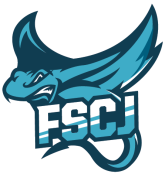Archive:
Math Conference 2022
Overview
Every spring, FSCJ hosts a Math Conference to provide a forum - for K-12, college mathematics educators, and those who support them - to learn from one another, share ideas and resources, and to effectively prepare students in basic and higher-level mathematical skills.
Program
- Agenda
-
Workshop Session #1
Jan. 27, 6:00 P.M. - 6:50 P.M. -
Workshop Session #2
Jan. 27, 7:00 P.M. - 7:50 P.M. -
Workshop Session #3
Jan. 28, 9:00 A.M. - 9:50 A.M. -
Workshop Session #4
Jan. 28, 10:00 A.M. - 10:50 A.M. -
Keynote Presentation
Jan. 28, 11:00 A.M. - 11:50 A.M. -
Workshop Session #5
Jan. 28, 1:00 P.M. - 1:50 P.M. -
Workshop Session #6
Jan. 28, 2:00 P.M. - 2:50 P.M. - Visit our Vendors
-
Agenda
Thursday, January 27th, 2022
FSCJ South CampusTimes Event 5:30 P.M. - 6:00 P.M. Registration Opens
(Location: Wilson Center Lobby)6:00 P.M. - 6:50 P.M. Workshop Session #1 7:00 P.M. - 7:50 P.M. Workshop Session #2 Friday, January 28th, 2022
FSCJ South CampusTimes Event 8:30 A.M. - 9:00 A.M. Registration Opens / Breakfast *
(Location: Wilson Center Lobby)9:00 A.M. - 9:50 A.M. Workshop Session #3 10:00 A.M. - 10:50 A.M. Workshop Session #4 11:00 A.M. - 11:50 A.M. Keynote Speaker Event: Erik Christensen 12:00 P.M. - 12:50 P.M. Lunch **
(Location: Wilson Center Lakeside Room)1:00 P.M. - 1:50 P.M. Workshop Session #5 2:00 P.M. - 2:50 P.M. Workshop Session #6 Additionally, there will be poster presentations in the Wilson Center Lobby on Thursday and Friday.
Students will be on hand for questions on Friday, 12:00 P.M. - 2:00 P.M.* Breakfast is sponsored by Lumen Learning.
** Lunch is sponsored by Winn-Dixie and snacks are sponsored by Macmillan Learning. -
Workshop Session #1
Jan. 27, 6:00 P.M. - 6:50 P.M.
Engaging Math Students
Paula Risko - FSCJ
Do you need more tricks in your bag to help your students learn more math? Come to this presentation and discuss a few engagement techniques.
STH, Room M2101
PD 1669 / 6:00 p.m. - 6:50 p.m.
Building Capacity for Change
Alicia Byrd, Deborah Fontaine, Dianne Mcauliffe - FSCJ
Faculty involved in Achieving the Dream's Building Capacity for Change program will host an open panel dialogue, sharing possibilities for how FSCJ might foster greater equity within our classroom environments at FSCJ.
STH, Room M2105
PD 1672 / 6:00 p.m. - 6:50 p.m.
The Amazing and Astounding Central Binomial Coefficient
Scott Hochwald - UNF
From the beginning
knew it was destined for greatness because it was “central." Hence, it was not surprised when a multiple of itself appeared in an answer to a problem posed and solved by Euler. Unfortunately, it received no formal recognition as Euler’s answer until about 60 years later when that same multiple was called a Catalan Number. From there
went on to star in
proof that there is always a prime number between the positive integers and
is irrational. We’ll talk about these results and other related topics.
STH, Wilson Center Lakeside Room
PD 1685 / 6:00 p.m. - 6:50 p.m.
The ALEKS Advantage: Flexibility and Success!
Lamar Hester - McGraw-Hill
ALEKS provides a flexibility that allows instructors to build their course their way and support students’ learning by identifying real understanding as well as early detection of students’ struggles.
Participants are encouraged to bring a computer.
STH, Room M2226
PD 1690 / 6:00 p.m. - 6:50 p.m.
Student Panel on Strategies that Promote a Math Growth Mindset
Ruth Dellinger-Young - FSCJ
Come learn from our students themselves. A student panel will share teaching strategies with the audience that allows them to overcome their mathematical struggles and fears and successfully conquer their math courses!
STH, Virtual Presentation (in-person viewing available in Room M2220)
PD 1664 / 6:00 p.m. - 6:50 p.m. -
Workshop Session #2
Jan. 27, 7:00 P.M. - 7:50 P.M.
Experiences with a Flipped Math Classroom
Maggie Byrns - Flagler College
Flipped classrooms are a natural fit among mathematics courses because they provide students with opportunities to engage deeply with content in a setting where they can seek help and interact with peers. Having taught various undergraduate classes using a flipped classroom model for several years, my experiences using this format will be discussed. Topics include getting started, video design, student perceptions, ensuring students watch videos, do’s and don’ts, and general recommendations for implementing a successful flipped classroom design for the mathematics classroom. I hope to promote a lively discussion in which participants can ask questions, share their own experiences, and leave with tools they can use to get started with their own flipped classroom.
STH, Virtual Presentation (in-person viewing available in Room M2101)
PD 1670 / 7:00 p.m. - 7:50 p.m.
Two Favorite Precalculus Problems
Rick Swenson - Retired Mathematics Educator
Come join retired mathematician Rick Swenson as he discusses two popular Precalculus word problems: perimeter and area of a rectangle and probability. Various teaching strategies and representations for these word problems will be given in order to obtain generalized solutions. Finally, participants will be shown how flash cards can be used to build student understanding of mathematical concepts.
STH, Room M2105
PD 1673 / 7:00 p.m. - 7:50 p.m.
Ten Play-based Approaches that Promote Content Mastery
Amy Baskin - FSCJ
Play-based teaching opens new possibilities for learners to engage in learning for the sake of learning rather than an extrinsically-motivated desire for high grades. While some educators gamify entire courses or sections of content, small strategies to infuse play are also highly effective. Games are practice, training, and exploration zones. Play engages social and cognitive function such as building mental models, identifying patterns, solving problems collaboratively, and forging emotional resonance. Academic capacity-building is the result; students develop memory consolidation of concepts, depth of knowledge, retrieval fluency, thinking dexterity, and enhanced critical analysis.
STH, Wilson Center Lakeside Room
PD 1686 / 7:00 p.m. - 7:50 p.m.
Do More with Desmos
Jeniah Jones - FSCJ
In this workshop, participants will explore ways to use Desmos Teacher activities in their class. We will take some time to play with Desmos and identify ways to integrate these pre-made activities into our classes and consider ways to create class activities from scratch.
Participants are encouraged to bring a computer.
STH, Virtual Presentation (in-person viewing available in Room M2210)
PD 1675 / 7:00 p.m. - 7:50 p.m. -
Workshop Session #3
Jan. 28, 9:00 A.M. - 9:50 A.M.
Implementation of STEM in Secondary Mathematics Classrooms: Identification of Teachers' Beliefs
Onder Koklu - Florida Gulf Coast University
The purpose of this study was to investigate teachers’ beliefs about the implementation of STEM (Science Technology Engineering and Mathematics) approach in secondary (6-12 grades) mathematics classes and identify intervening belief aspects. A questionnaire was developed regarding practicing secondary level mathematics teachers’ beliefs about the implementation of STEM in mathematics classes. An online form of the questionnaire was created and sent to all secondary math teachers in two counties in the state of Florida. Eighty-two were received back from teachers. The results of factor analysis confirmed that items were distributed under five major aspects. Finally, the results of the data analysis disclosed that although most teachers believe that the implementation of STEM education is necessary, some have concerns about the effectiveness of the implementation because of shortages of materials, resources, and equipment needed for implementation of STEM. Another important finding is that teachers don’t have appropriate and sufficient knowledge for the implementation of STEM activities.
(Canceled) STH, Room M2101
PD 1671 / 9:00 a.m. - 9:50 a.m.
I Hate Math but I Want to be a Member of the Eye Care Team
Catherine Titus, Paula Risko - FSCJ
What kind of math is used in the ophthalmic personnel career field? How to handle students who hate math and still want to do this career? You will see real life applications that you can bring to your classroom. You will also see tips on how to handle math anxiety.
STH, Room M2105
PD 1658 / 9:00 a.m. - 9:50 a.m.
Project-Based Learning
Nancy Eschen, Amber Strickland - FSCJ
The aim of this presentation is to provide the Mathematics faculty of FSCJ with the knowledge and resources necessary to incorporate Project-Based Learning into their courses without sacrificing the necessary time needed to teach the core content of their course. In the Fall of 2021, we, Mathematics Professor Nancy Eschen and Academic Librarian Professor Amber Strickland, collaborated to develop a research project for the Honors section of College Algebra at the South Campus of FSCJ. This research project required students select and analyze a dataset relating to a topic of their choice and to collaborate with the librarian to analyze the scholarly discourse surrounding the topic and data. The project focused on the College Algebra topic of function applications. Students used technology (Excel) to find appropriate predictive function models (linear, quadratic, and exponential) for their data sets.
This project resulted in a project paper and class presentation. In this presentation, we plan to: provide an overview of the pedagogical method know as Project-Based Learning, present on how we developed the project for this course, discuss how the project was presented to the students, and discuss the outcomes of this project.
STH, Room M2108
PD 1678 / 9:00 a.m. - 9:50 a.m.
Get Ready MAT1033! An Initiative to Address Student Preparedness for Intermediate Algebra
Megan Cavanah, Kimberly Hess - Polk State College
In response to the learning loss associated with the COVID-19 pandemic, mathematics faculty at Polk State College created a bootcamp course to help students practice essential, prerequisite material before starting Intermediate Algebra. The course, which comes at no cost to students, includes videos, practice and self-assessments to help students work through material prior to starting the credit-bearing course. In this session, the designers and coordinators for Get Ready MAT 1033 will share the course design, the implementation and marketing strategies used to launch the course, as well as lessons learned. In addition to discussing student outcomes, participants will reflect on how this model could be used at their colleges.
STH, Virtual Presentation (in-person viewing available in Room M2206
PD 1687 / 9:00 a.m. - 9:50 a.m.
Using H5P to Create Interactive Content
Gabi Booth, Rachel Repyneck - Daytona State College
Are you thinking about designing or improving an online course? This presentation will introduce you to H5P, a free open-source tool that makes it easy to create rich, interactive, personalized content that can take your delivery of material up to the next level. In this session, get to know H5P, how to get started creating H5P content, and how to import it into the LMS. We will show examples of how H5P interactive videos are used in our Intermediate Algebra and Statistics courses.
Participants are encouraged to bring a computer.
STH, Room M2210
PD 1676 / 9:00 a.m. - 9:50 a.m.
Help Your Students Achieve More in Mathematics
Marwan Abu-Sawwa - FSCJ, Danielle Wolf - Macmillan Learning
Marwan Abu-Sawwa, professor of calculus and precalculus at Florida State College at Jacksonville, will demonstrate how Achieve has increased student performance in his courses. Together with Macmillan, he will share his experiences that include three years of classroom data using Achieve. Achieve redefines homework by offering guidance for every student with tutorial-style assessment, interactives (powered by Desmos), and easy-to-implement active learning resources with i-clicker integration help develop students’ conceptual understanding and critical thinking in real-world contexts. Macmillan Learning’s Achieve platform is available in courses including: liberal arts math, precalculus, and calculus. Please attend this session to learn more about class test opportunities for the spring 2022 semester.
Participants are encouraged to bring a computer.
STH, Room M2226
PD 1655 / 9:00 a.m. - 9:50 a.m. -
Workshop Session #4
Jan. 28, 10:00 A.M. - 10:50 A.M.
Effect of a Method Course: Improving Prospective Elementary Teachers’ Abilities to Create Addition and Subtraction Word Problems
Onder Koklu – Florida Gulf Coast University
The purpose of this research is to explore how a method course improves prospective elementary teachers’ knowledge of various structures of addition and subtraction word problems. For this purpose, 55 prospective elementary teachers who were enrolled in a mathematics education method course were asked to pose addition and subtraction word problems before and after completion of the specific unit called “Developing Meanings for the Operations”. Problems created by participants were then analyzed and categorized in light of the theoretical frame. Repeated measure design as one of the quasi-experimental designs was used in this study to measure the effects of the instruction over time. One-way ANOVA techniques were applied for data analysis. The findings of this study suggested that although certain types of problems are extensively created by participants before starting the unit, participants created more diverse addition and subtraction word problems upon completion of the specific unit.
STH, Room M2101
PD 1679 / 10:00 a.m. - 10:50 a.m.
ECON and MATH: A Match Made in Heaven
Roman Cech - FSCJ
I will present examples of simple math applications to the analysis of basic economic processes. The audience will experience how economic growth is hard to gauge without logarithms, how profit maximization is confusing without derivatives and more.
STH, Room M2105
PD 1659 / 10:00 a.m. - 10:50 a.m.
Course Coordination in the Midst of COVID-19 and Thereafter
Carrie Grant, Adebukola Adeyemi, Kurt Sebastian – Flagler College
Course coordination describes coordination in the design, structure, and teaching of a course. COVID-19 has forced educators to reinvent themselves and their classrooms. Things are not back to “normal”, so coordinating our Introductory Statistics course has become even more important. In this presentation, we will share how our Statistics team continue to collaborate to create a learning environment that provides consistency to our students. Based on our experience, we will make recommendations regarding course coordination that will provide those in attendance ideas to use in their own institutions. Our discussion will include our course coordination model and the outcomes experienced.
STH, Room M2108
PD 1665 / 10:00 a.m. - 10:50 a.m.
Using Technology in the Mathematics Classroom
Lawana McCoy – Palm Beach State College
This presentation will introduce participants to apps and resources to use in the mathematics classroom. Students engage in learning via any mode of learning. The use of these resources will foster collaboration and build students' confidence using various approaches in math class.
STH, Room M2206
PD 1688 / 10:00 a.m. - 10:50 a.m.
Knewton Alta in STEM: A Mastery-Based Personalized Learning Platform
Angela Foster, Becky Moening - Wiley Education
Join Angie Foster and Dr. Becky Moening for a discussion of Knewton Alta, a mastery-based adaptive platform that provides students detailed answer explanations, just-in-time instruction, and remediation to prerequisite skills.
Participants are encouraged to bring a computer.
STH, Room M2210
PD 1677 / 10:00 a.m. - 10:50 a.m.
Adopting Flexible Courseware to Build a Better Course
Manuela Ambrosino, Katrice Taylor - Lumen Learning
Adopting Flexible Courseware to Build a Better Course: Aligning Your Learning Outcomes, Activities and Assessments with Lumen Learning’s Online Homework Manager (OHM). OHM is a homework engine and course building platform. OHM offers the combination of rich OER content and tremendous flexibility to customize course materials to fit your institutional and faculty needs. OHM is affordable, while providing students with the rigorous practice they need to quantitative subjects.
Participants are encouraged to bring a computer.
STH, Virtual Presentation (in-person viewing available in Room M2226
PD 1656 / 10:00 a.m. - 10:50 a.m.
Time Value of Money: The Fund-a-mentals of Financial Aid
Daniel Barkowitz - Valencia College
Students need help paying for college, and as part of their experience of financing their higher education expense, they need a solid understanding of the time value of money. In this session we will explore some fun ways to teach the fund-a-mentals of paying for college. We will make use of Excel, and some interesting problem sets to examine the impact of borrowing and investment choices today on the funding realities of tomorrow.
STH, Virtual Presentation (in-person viewing available in Room M2220)
PD 1680 / 10:00 a.m. - 10:50 a.m. -
Keynote Presentation
Jan. 28, 11:00 A.M. - 11:50 A.M.
Reimagining the Classroom Experience
Erik Christensen - South Florida State College
Reversing the traditional lecture and homework elements of a class and adopting active engagement learning activities can transform the learning experience from a teacher-centered to a learner-centered environment. This enables classroom time to focus on content application and meaningful interaction between peers and the instructor. As a result, classroom dynamics will completely change and make students more responsible for their own learning while student engagement, participation, and conceptual understanding sharply increase. Come learn about a highly effective flipped classroom model and leave with a variety of classroom-proven, interactive engagement activities that you can implement immediately.
STH, Wilson Center Main Stage or Virtual
PD 1681 / 11:00 a.m. - 11:50 a.m.
About our Presenter
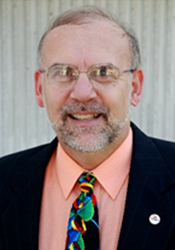 Erik Christensen holds engineering degrees from the U.S. Naval Academy and the Massachusetts Institute of Technology. He has flipped his physics and astrobiology classes at South Florida State College since 2013 and, as a result, has seen monumental increases in student engagement, participation, and success. Erik regularly presents on his creative and innovative approaches to engaging students at the SACSCOC Annual Meeting and Summer Institute, Online Learning Consortium (OLC) Accelerate International Conference on Online Learning, STEMtech, SXSWedu, Connexions, and a variety of NISOD regional workshops.
Erik Christensen holds engineering degrees from the U.S. Naval Academy and the Massachusetts Institute of Technology. He has flipped his physics and astrobiology classes at South Florida State College since 2013 and, as a result, has seen monumental increases in student engagement, participation, and success. Erik regularly presents on his creative and innovative approaches to engaging students at the SACSCOC Annual Meeting and Summer Institute, Online Learning Consortium (OLC) Accelerate International Conference on Online Learning, STEMtech, SXSWedu, Connexions, and a variety of NISOD regional workshops. -
Workshop Session #5
Jan. 28, 1:00 P.M. - 1:50 P.M.
Faculty and Advising: A Discussion...
John Woodward - FSCJ
Come join fellow colleagues for an opportunity to discuss academic advising at FSCJ.
STH, Room M2101
PD 1682 / 1:00 p.m. - 1:50 p.m.
Two Favorite Precalculus Problems
Rick Swenson - Retired Mathematics Educator
Come join retired mathematician Rick Swenson as he discusses two popular Precalculus word problems: perimeter and area of a rectangle and probability. Various teaching strategies and representations for these word problems will be given in order to obtain generalized solutions. Finally, participants will be shown how flash cards can be used to build student understanding of mathematical concepts.
STH, Room M2105
PD 1673 / 1:00 p.m. - 1:50 p.m.
Accelerated Combo Classes Success Rates
Niki Goenaga, Angelica Cavallaro – Miami Dade College
STEM students have a significant number of courses that need to be completed before they can enter their Baccalaureate program of choice. In an effort to expedite the completion of all the courses required in Mathematics, especially those that arrive at college underprepared, Freshmen are enroll in combo courses that allow students to complete two math classes in one semester. Initially intended just to expedite completion of Math course, data shows students performing better in accelerated courses versus traditional courses and improved performance in subsequent Math courses.
STH, Room M2108
PD 1666 / 1:00 p.m. - 1:50 p.m.
Using Technology Applications to Check for Student Understanding
Janice Woodruff – Indian River State College
In this session, Association of College and University Educator (ACUE) credentialed faculty will share ideas on how to check for student understanding and discuss the importance or checking for understanding as part of formative assessment. Several technology tools will be shared. A laptop and smartphone are recommended for participation.
Participants are encouraged to bring a computer.
STH, Room M2226
PD 1657 / 1:00 p.m. - 1:50 p.m. -
Workshop Session #6
Jan. 28, 2:00 P.M. - 2:50 P.M.
Principles of Adult Learning
Marcia Lamkin - Penn State University
Dr. Marcia Lamkin will present the research-based differences between pedagogy and andragogy. One principle states that adult learners need to see immediate applicability of their new-found knowledge. Participants will apply this principle by immediately creating an activity, quiz or assignment for their own use. Dr. Lamkin has been a public school teacher, principal and superintendent, as well as a professor of education. She earned her post-doc certification in Applied Behavior Analysis at Penn State University.
STH, Room M2101
PD 1684 / 2:00 p.m. - 2:50 p.m.
Leveraging myGradPlan to Engage Students in Using Tutoring Services
Youlanda Henry - FSCJ
This session will focus on how students can use the new myGradPlan platform to schedule campus-based tutoring and how faculty can use their faculty role to track students’ usage of LLC services.
STH, Room M2105
PD 1674 / 2:00 p.m. - 2:50 p.m.
Mathematics Pathway Guide
Gabi Booth - Daytona State College
The mathematics pathway is a sequence of mathematics courses needed to meet the general education requirements and to support a program of study. The School of Mathematics at Daytona State College has developed a Mathematics Pathway guide that will help students through the mathematics pathways to ensure that students choose the right pathway. This presentation will be about the DSC Mathematics Pathway guide and how the guide has helped students to select the right math courses.
STH, Room M2108
PD 1667 / 2:00 p.m. - 2:50 p.m.
A Guided Tour of my Favorite Open-Source Texts and YouTube Channels
Bill Meisel - FSCJ
Professor Meisel will discuss the open-source texts and notes that he uses in his classes and explain why he selected each one. He will finish off with his top 3 Math YouTube channels.
STH, Room M2206
PD 1689 / 2:00 p.m. - 2:50 p.m. -
Visit our Vendors
Link-Systems International, Inc.
Scan the following QR code to schedule a meeting:
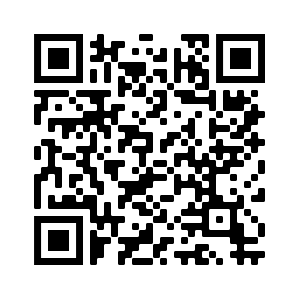
Wiley
Click here to schedule a meeting
Lumen Learning
Scan the following QR code to join the meeting room on Thursday, 1/27, 5:30 P.M. - 8:00 P.M. and Friday, 1/28, 8:30 A.M. to 3:00 P.M.:
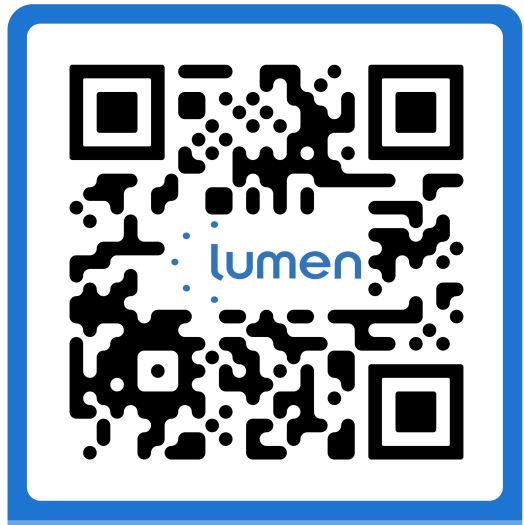
Pearson
Scan the following QR code to join the meeting room on Friday, 1/28, 8:30 A.M. - 3:00 P.M.:
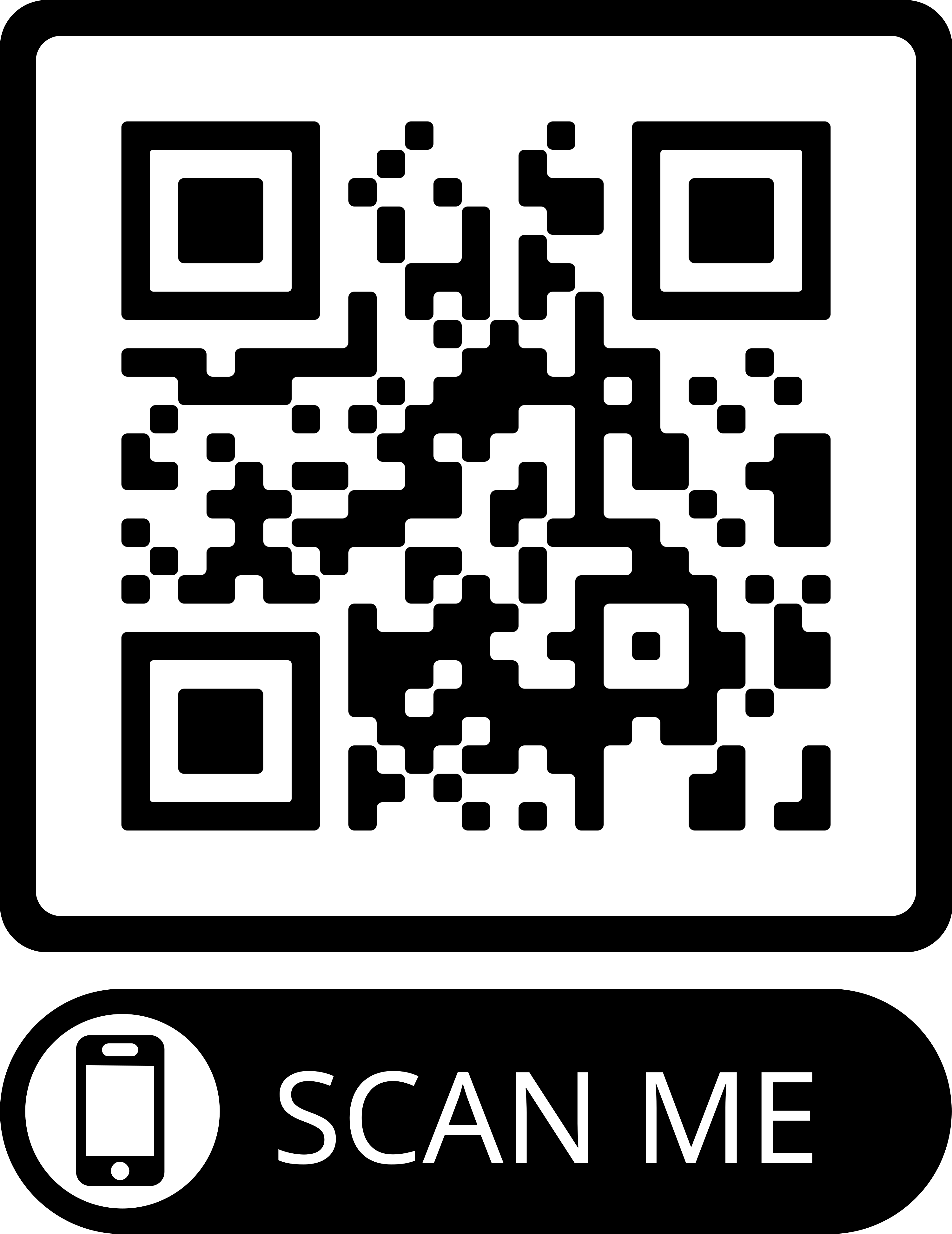
SACSCOC
Florida State College at Jacksonville is accredited by the Southern Association of Colleges and Schools Commission on Colleges (SACSCOC) to award the baccalaureate and associate degree. Contact the Commission on Colleges at 1866 Southern Lane, Decatur, Georgia 30033-4097, or call (404) 679-4500 for questions about the accreditation of Florida State College at Jacksonville. The Commission is to be contacted only if there is evidence that appears to support an institution's significant non-compliance with a requirement or standard.
◈ 501 West State Street, Jacksonville, FL 32202 - © FSCJ - All Rights Reserved
